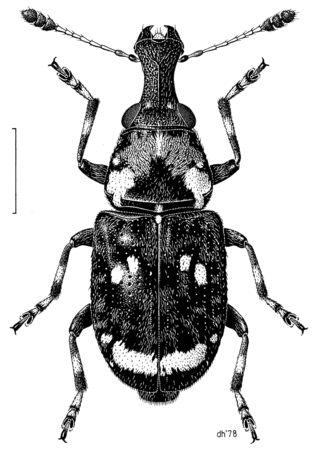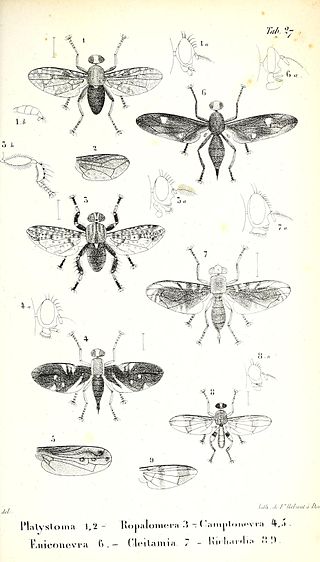
Herring are various species of forage fish, mostly belonging to the family of Clupeidae.

Convolvulaceae, commonly called the bindweeds or morning glories, is a family of about 60 genera and more than 1,650 species. These species are primarily herbaceous vines, but also include trees, shrubs and herbs. The tubers of several species are edible, the best known of which is the sweet potato.

Jasmine is a genus of shrubs and vines in the olive family of Oleaceae. It contains around 200 species native to tropical and warm temperate regions of Eurasia, Africa, and Oceania. Jasmines are widely cultivated for the characteristic fragrance of their flowers. Additionally a number of unrelated species of plants or flowers contain the word "jasmine" in their common names.

Plantaginaceae, the plantain family, is a large, diverse family of flowering plants in the order Lamiales that includes common flowers such as snapdragon and foxglove. It is unrelated to the banana-like fruit also called "plantain." In older classifications, Plantaginaceae was the only family of the order Plantaginales, but numerous phylogenetic studies, summarized by the Angiosperm Phylogeny Group, have demonstrated that this taxon should be included within Lamiales.

Anthribidae is a family of beetles also known as fungus weevils. The antennae are not elbowed, may occasionally be longer than the body and thread-like, and can be the longest of any members of Curculionoidea. As in the Nemonychidae, the labrum appears as a separate segment to the clypeus, and the maxillary palps are long and projecting.
The National Biodiversity Network (UK) (NBN) is a collaborative venture set up in 2000 in the United Kingdom committed to making biodiversity information available through various media, including on the internet via the NBN Atlas—the data search website of the NBN.

Genetic pollution is a term for uncontrolled gene flow into wild populations. It is defined as "the dispersal of contaminated altered genes from genetically engineered organisms to natural organisms, esp. by cross-pollination", but has come to be used in some broader ways. It is related to the population genetics concept of gene flow, and genetic rescue, which is genetic material intentionally introduced to increase the fitness of a population. It is called genetic pollution when it negatively impacts the fitness of a population, such as through outbreeding depression and the introduction of unwanted phenotypes which can lead to extinction.

The Phalangodidae are a family of harvestmen with about 30 genera and more than 100 described species, distributed in the Holarctic region.

Polar Bear Pass, is a 262,400 hectare wetland and mountain pass on Bathurst Island within the Qikiqtaaluk Region, Nunavut, Canada. The pass is on federal Crown land.
The World Register of Marine Species (WoRMS) is a taxonomic database that aims to provide an authoritative and comprehensive list of names of marine organisms.

Oberea is a genus of longhorn beetles, most of which are stem borers of various plants, including blackberries and their relatives.

Clivina is a genus of ground beetle native to the Palearctic, the Nearctic, the Near East and North Africa. There are more than 600 described species in Clivina.

The Ropalomeridae are a family of acalyptrate flies.

iNaturalist is an American 501(c)(3) nonprofit social network of naturalists, citizen scientists, and biologists built on the concept of mapping and sharing observations of biodiversity across the globe. iNaturalist may be accessed via its website or from its mobile applications. iNaturalist includes an automated species identification tool, and users further assist each other in identifying organisms from photographs and even sound recordings. As of 9 July 2024, iNaturalist users had contributed approximately 197,660,888 observations of plants, animals, fungi, and other organisms worldwide, and 290,007 users were active in the previous 30 days.

Laphriinae is a subfamily of robber flies in the family Asilidae. There are more than 110 genera and 1,000 described species in Laphriinae. Many are mimics of syntopic bees. Some prey on bees as adults. Larvae of the genus Hyperechia are known to grow inside the cells of Xylocopa bees, feeding on their larvae.
Plants of the World Online (POWO) is an online database published by the Royal Botanic Gardens, Kew. It was launched in March 2017 with the ultimate aim being "to enable users to access information on all the world's known seed-bearing plants by 2020". This was Kew's answer to the "2020 target 1" of the Convention on Biological Diversity (CBD): "an online flora for all known plants."

Pogonosoma dorsatum is a species of robber flies.
Animal Ethics is a nonprofit organization formed to promote discussion and debate around issues in animal ethics and to provide information and resources for animal advocates. They also do outreach work in several countries on the issue of speciesism. Their aim is to create a world where moral consideration is extended to all sentient beings. The organization's website covers topics such as speciesism, sentience, veganism and wild animal suffering and has content translated into several languages.

Pogonosoma maroccanum is a species of fly from the genus Pogonosoma. The species was originally described by Johan Christian Fabricius in 1794.
















